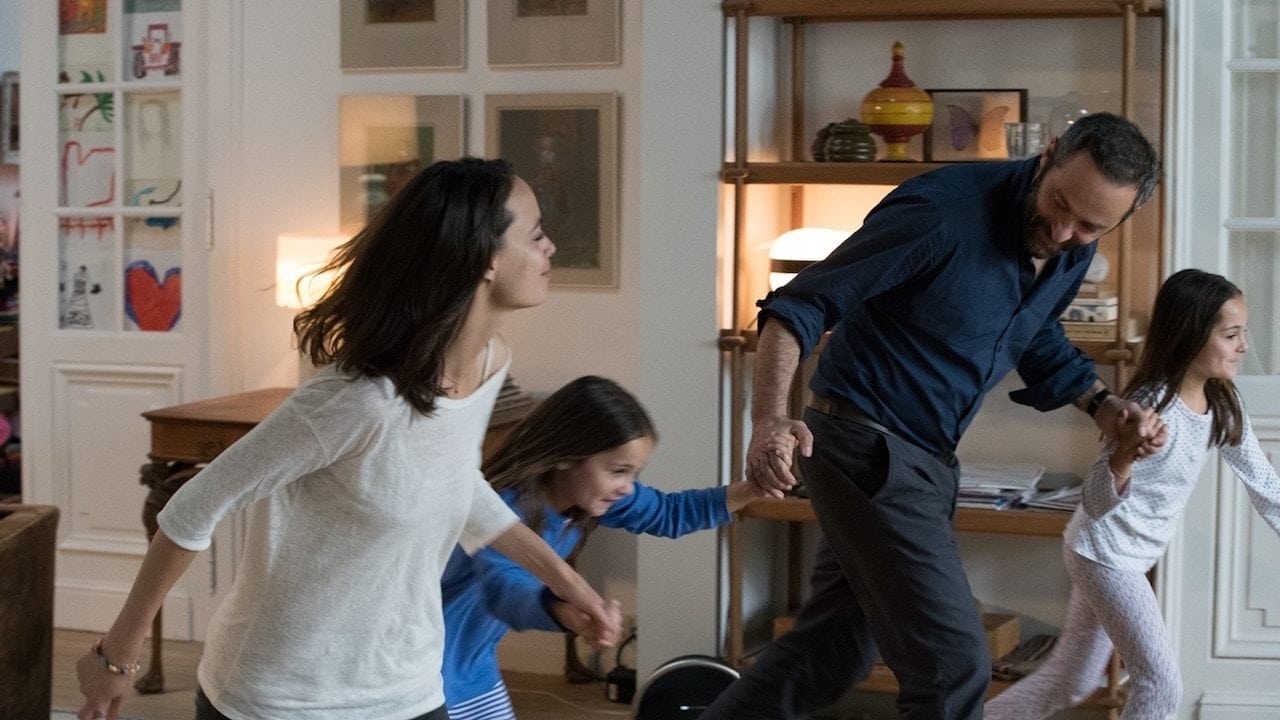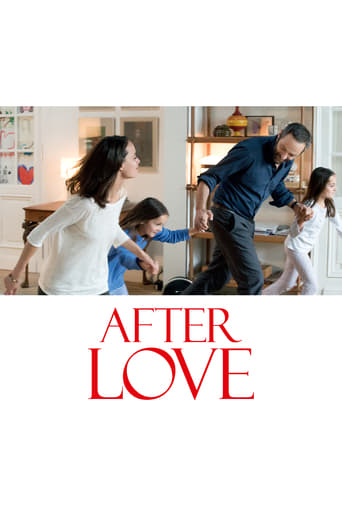Brennan Camacho
Mostly, the movie is committed to the value of a good time.
Stephanie
There is, somehow, an interesting story here, as well as some good acting. There are also some good scenes
Ortiz
Excellent and certainly provocative... If nothing else, the film is a real conversation starter.
Allissa
.Like the great film, it's made with a great deal of visible affection both in front of and behind the camera.
Tom Dooley
Marie and Boris were in love once and have two daughters and a lovely house that Boris has done up mostly by himself. Somewhere along that journey the love has been reversed and now Marie can not abide the sight of her husband. They seem to have arrangements to cohabit until finances have been sorted but things are steadily falling apart.The film can be a hard watch as anyone going through a relationship meltdown or who has gone through one will know. The ways they chose to humiliate each other seem to know no bounds. Then we have the guilt trips and the fumbling make ups.It has the feel of a very well observed and constructed film. All the actors are great especially the children. What it does get for its unrelenting realism is a bleak and almost depressing film. This is as far from a 'feel good' film as you can possibly get – think 'Kramer Vs Kramer' only with better wine. As an artistic endeavour though it does have to be applauded for its achievements – but I had to watch something more cheery afterwards so do be warned.
maurice yacowar
The French title — L'economie du couple — catches the social relevance of the film better than the English version, which narrows to the couple's emotional state.A divorcing couple is forced by finances to live together. This may be the most harrowing treatment of a crumbling marriage since Bergman's TV series and film, Scenes from a Marriage. The film opens in the heat of the couple's hatred. We fill in the background as the drama proceeds. It ends with the cold impersonal voice of a notary spelling out the terms of their final settlement. The incompatibility is apparent. Marie has a job and for years has been carrying Boris, who is a capable builder/renovator but lacks self-discipline. Marie's mistake was to confuse desire with love. That's what leads to their one-night stand here, which fails to resolve the couple's tensions and antagonism. Now their anger prevents each from understanding the other's position. The crux is economic: Boris can't afford to move out and Marie won't give him the half share of their apartment's selling price he demands. The split ramifies beyond the family. Boris disrupts her dinner party with some mutual friends and bristles at a possible "suitor." He manipulates her mother into hiring him for a repair job against Marie's wishes. But the twin daughters become their principal battleground. Because Boris keeps forgetting to buy the one girl's soccer boots, Marie finally buys them. When they're "lost" at their first game, Boris buys a replacement. Boris resents Marie's limits on his access to the girls, Marie the mishaps that occur in his care.But there's another issue: class. This is what gives the film a broader scope than marital emotions turned martial. Rugged Boris is working class; Marie was born wealthy and elegant. Her social and economic advantage persists to the end. Even after reluctantly giving him half their home's selling price, she still will have the money from her father's bequest, her childhood home that Boris has been hired to repair. That makes this psychological study of a splitting couple a reflection of a society — Belgium, France, Europe — that in this century remains as frozen and fragmented by a harsh class structure as it was two hundred years ago. The story of a breaking couple exposes a hatefully fractured social structure.
writers_reign
Although I found this a brilliant film I also found myself thinking throughout why don't this couple go to arbitration, something they actually did at the end and of course the short answer is that had they done the obvious thing from the get-go we would have wound up with at best a two-reeler. I've never found myself in the position that the two protagonists share but the overwhelming impression is that millions of couples all over the world have and are. The two leading actors are simply outstanding and the real-life twins who play their twin daughters are not far behind. I first became aware of Berenice Bejo in the cod James Bond movie OSS 117: Cairo, Nest Of Spies, in which she played opposite Jean Dujardine long before they co-starred in The Artist and I always found her watchable and more than competent but here she really comes into her own and earns a place alongside the best actresses in French cinema from Isabelle Huppert on down. Renaissance man Cedric Kahn - Writer-Director-Actor is more than a match for her and together they lift a potentially depressing film to another level.
GUENOT PHILIPPE
This film is a rather realistic and also depressing drama. The true story and also accurate description of the daily trench war, domestic trench war between a man and a woman married since fifteen years and who see their couple fall apart like an iceberg in hot summer. It is highly depressing because it is so close to reality for many many folks. Some sequences are very disturbing, such as the one when the man comes inside the house, during the diner with his wife's friends...You have the feeling to watch real life events and people talk like in real life. I thought of another film also starring the outstanding Berenice Bejo: LE PASSE, released three years ago. The story was not really the same but the directing and acting were very similar. Don't miss it. But not if you are with your wife or husband and you get through a major crisis. Because that would not make it. Choose BRICE DE NICE instead.

